What's The Difference?
Topic 1134 | Page 1
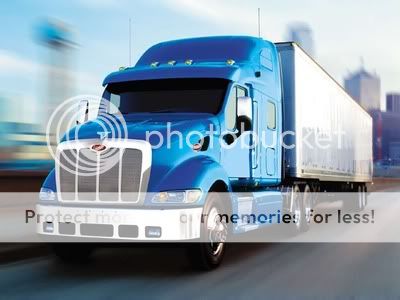
Dry van for one is "contained" no need to worry about tarping or tying down the load. Flatbed loads always need to be tied down, and may need to be tarped due to weather and cargo. Flatbed is just usually considered more of a hassle due to the extra work by many drivers, however a lot of drivers prefer flatbed so its just a matter of preference really. Flatbed loads being exposed are also more of a liability due to things that could fall off the trailer and cause an accident, as well as a liability for theft or vandalism. We have a few flatbed drivers here as well as dry van drivers, not to mention refer, tanker, and hazmat drivers too. There are just many different types of loads, and they all have their unique positives and negatives.
HAZMAT:
Hazardous Materials
Explosive, flammable, poisonous or otherwise potentially dangerous cargo. Large amounts of especially hazardous cargo are required to be placarded under HAZMAT regulations
Dry Van:
A trailer or truck that that requires no special attention, such as refrigeration, that hauls regular palletted, boxed, or floor-loaded freight. The most common type of trailer in trucking.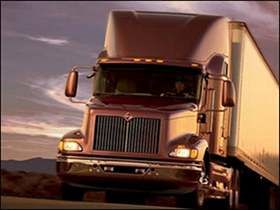
Charles, who do you run with?
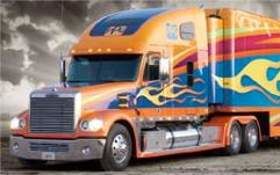
I drive a dry van. I would NEVER flatbed....that is just my preference.
WHY? I weigh a buck fifty.....that is less than most tarps, and I don't see myself trying to tie down a tarp in January in Chicago, ain't gonna happen LOL
Dry Van:
A trailer or truck that that requires no special attention, such as refrigeration, that hauls regular palletted, boxed, or floor-loaded freight. The most common type of trailer in trucking.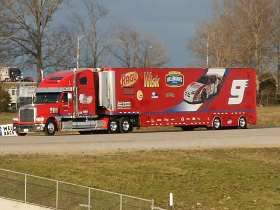
I drive a dry van. I would NEVER flatbed....that is just my preference.
WHY? I weigh a buck fifty.....that is less than most tarps, and I don't see myself trying to tie down a tarp in January in Chicago, ain't gonna happen LOL
I'm way over six ft tall, and weigh 295. I don't see myself manhandling and tying down a tarp in January in Chicago either, nor in the summer, lol. Maybe when I was thirty.....naw.
There is much I will love about truck driving. Loading and unloading is not one of them. I unloaded trucks carrying dry grocery and reefer freight almost every day for Walmart for nine years. Really, it is not that bad as the freight was palletized, and if you have a motorized jack, it is easy. Unless the blasted pallets have turned over in transit that is. I would simply prefer as much no touch freight as possible at this point.
Dry Van:
A trailer or truck that that requires no special attention, such as refrigeration, that hauls regular palletted, boxed, or floor-loaded freight. The most common type of trailer in trucking.Reefer:
A refrigerated trailer.

Charles, who do you run with?
Getting ready to start school, have relatives in trucking and finally getting there myself.

Ahhh, Charles thanks, are you doing private schooling or company sponsored?
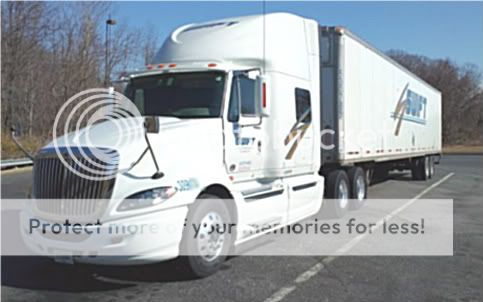
Dry van for one is "contained" no need to worry about tarping or tying down the load. Flatbed loads always need to be tied down, and may need to be tarped due to weather and cargo. Flatbed is just usually considered more of a hassle due to the extra work by many drivers, however a lot of drivers prefer flatbed so its just a matter of preference really. Flatbed loads being exposed are also more of a liability due to things that could fall off the trailer and cause an accident, as well as a liability for theft or vandalism. We have a few flatbed drivers here as well as dry van drivers, not to mention refer, tanker, and hazmat drivers too. There are just many different types of loads, and they all have their unique positives and negatives.
I would only add a bit to Charles' reply by saying that generally, flatbed loads pay a bit more per mile for OTR loads, though the rate varies from company to company. Also, flatbed drivers usually get "tarp pay" per load for the extra work of chaining and tarping different loads. Flatbed loads are usually a lower height than van freight and tend to be less box-shaped than vans, making them less susceptible to wind and making clearance hazards less of an issue. Flatbed loads are usually on the heavier side, though, and are subject to more regulations by the shipper , carrier, and last but not least, the DOT. They have to stop at scales more often and their weight is watched very, very carefully. Like most jobs that pay a higher rate, flatbed work is just that-more work. Some flatbed drivers have told me they feel their work is more rewarding and offers more variety than pulling a van every day, and for them, maybe that's enough in itself. I've never done it myself. Didn't feel like getting dirty and sweaty then driving for 10 or 11 hours, but that's just me.
HAZMAT:
Hazardous Materials
Explosive, flammable, poisonous or otherwise potentially dangerous cargo. Large amounts of especially hazardous cargo are required to be placarded under HAZMAT regulations
Shipper:
The customer who is shipping the freight. This is where the driver will pick up a load and then deliver it to the receiver or consignee.
OTR:
Over The Road
OTR driving normally means you'll be hauling freight to various customers throughout your company's hauling region. It often entails being gone from home for two to three weeks at a time.
DOT:
Department Of Transportation
A department of the federal executive branch responsible for the national highways and for railroad and airline safety. It also manages Amtrak, the national railroad system, and the Coast Guard.
State and Federal DOT Officers are responsible for commercial vehicle enforcement. "The truck police" you could call them.
Dry Van:
A trailer or truck that that requires no special attention, such as refrigeration, that hauls regular palletted, boxed, or floor-loaded freight. The most common type of trailer in trucking.Charles, we have a category of articles on How To Choose A Truck Driving Job and if you'll scroll down the list a bit you'll see an 8-part series that I wrote. In that series is a breakdown of different types of freight and what the job entails. You'll get a much better understanding of the differences. Here's links to a couple of them:
Choosing A Truck Driving Job Part VII: Tankers and Flatbeds
Choosing A Truck Driving Job Part VI: Dry Van and Refrigerated Companies
Dm:
Dispatcher, Fleet Manager, Driver Manager
The primary person a driver communicates with at his/her company. A dispatcher can play many roles, depending on the company's structure. Dispatchers may assign freight, file requests for home time, relay messages between the driver and management, inform customer service of any delays, change appointment times, and report information to the load planners.Dry Van:
A trailer or truck that that requires no special attention, such as refrigeration, that hauls regular palletted, boxed, or floor-loaded freight. The most common type of trailer in trucking.OOS:
When a violation by either a driver or company is confirmed, an out-of-service order removes either the driver or the vehicle from the roadway until the violation is corrected.
I pull a reefer and couldn't see doing anything else. The hum of the reefer knocks me right out at night. Cant sleep without it! Another plus is lots of naps since you dock more. I LOVE MY NAPS:) Also sweeping our a trailer with the reefer on -10 in summer is WAYYYY better than getting in a hot damn dry box;)
Reefer:
A refrigerated trailer.
New Reply:
New! Check out our help videos for a better understanding of our forum features

















Preview:








 TT On Facebook
TT On Facebook
I see a lot of people talk about how they prefer dry van or flatbed. I honestly don't see a big difference in the different types of cargo. Can someone give me a rundown of why I would want to specifically choose A over B?
Dry Van:
A trailer or truck that that requires no special attention, such as refrigeration, that hauls regular palletted, boxed, or floor-loaded freight. The most common type of trailer in trucking.OOS:
When a violation by either a driver or company is confirmed, an out-of-service order removes either the driver or the vehicle from the roadway until the violation is corrected.